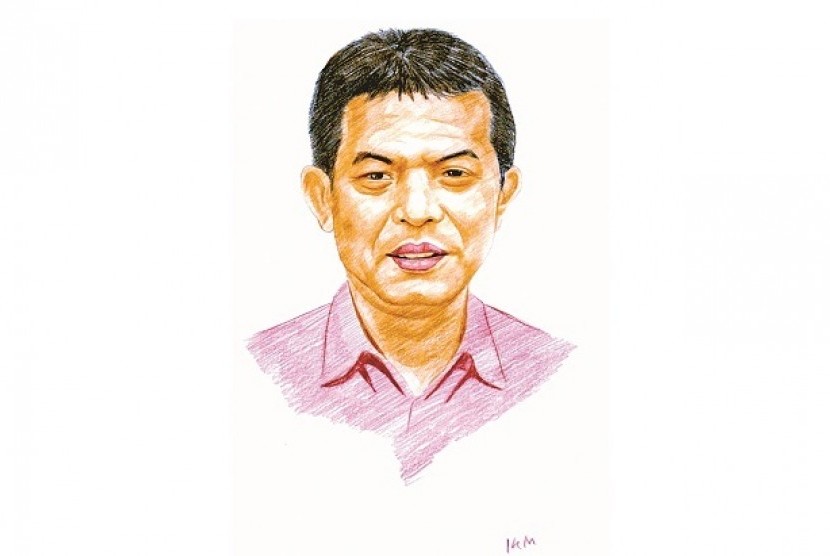REPUBLIKA.CO.ID, By Ikhwanul Kiram Mashuri
Prime Minister (PM) Recep Tayyib Erdogan of Turkey or the Justice and Development Party (AKP) took up to 10 years to change the law banning headscarves into state institutions.
In the span of 10 years, the wife of the Prime Minister and the President (Emine Erdogan and Gul Hayrunnisa) can not accompany their husbands in the official resident and state palace. For the reason, PM Erdogan then sent their two daughters to study in United States and Bosnia.
Last month, PM Erdogan announced a reform package that was approved by Parliament. The package includes, among others, repealing laws that prohibit the use of the headscarves/hijab in government institutions/state bodies.
Previously, the ban on headscarves on campuses, including in schools and universities, has also been revoked. That way, women civil servants are now free to wear Muslimah dress and men allowed to have beard. However, the ban on wearing the veil and bearded still apply for the army, police, judges, and prosecutors.
The package is a major leap and is a success of government party, Erdogan's AK Party leadership. Ten years ago, or more precisely in 2002, when the AKP won the elections and ushered Erdogan into premiership, the Islamist parties pledged to lift a ban on Muslim women wearing this dress in all government institutions.
However, to realize the promise, it was not as easy as turning the palm of the hand. In Turkey, although 98 percent of the population is Muslim, headscarf or hijab issue is not only a religious affair of each individual. Hijab has become a political symbol.
It's a symbol for the secular as well as a symbol for those who care about the religion of Islam. For secular parties, banning headscarves in state institutions is the realization and embodiment of the modern Turkish Republic founded by Mustafa Kamal Ataturk since 90 years ago.
Modern Turkey is defined to keep and maintain a secular state. Namely by removing or banning religious symbols into the institutions of government/ state. Its including a ban on wearing religious attributes, especially the headscarf, in state institutions. In other words, allowing religious attributes in government/state institutions means eliminating the hallmark of secularism and modern Turkish Republic.
On the other hand, Islamic circles in Turkey said that the true secular state actually provide the greatest possible freedom to every individual to carry out the teachings of their religion, among other wear Muslim/Muslimah fashion.
Moreover, Muslims are the majority in Turkey. That's why, among Muslims, especially political parties, continue to fight for Islam, including the wearing of religious attributes.
The first fight for headscarf began when Najmuddin Erbakan became Turkish Prime Minister in 1996. However, because his government was over-emphasized the agenda of Islam, he was finally ousted by the military (1997) which the guard of Turkish secularism. In fact, a female lawmaker of the Refah Party (Welfare Party) led by Erbakan, Qawaqiji Marwah, who managed to enter the parliament building with headscarf, forced out by other secular leftist party MPs.
Learning from Erbakan, Erdogan then use another strategy when it becomes PM. First, he never offers any religious symbols in the fight for the implementation of Islam, especially concerning the headscarf.
He defends it with human rights argument. By promoting human rights, there was no reason for the seculars to oppose it.
Moreover, when he launched the reform package, particularly in relation to the headscarf, Erdogan asserted that the step is a part of efforts to strengthen Turkey position to gain full membership of the European Union.
The latter is also the desire of the secular over the years but constrained because the number of human rights violations committed by the previous secular government.
Second, he must prove that when the ruling party is able to improve the economic welfare of the people and Turkish economy. It is then proved by AKP in 10 years of their power. For example, per capita income 10 years ago only 3,000 USD, now - in 10 year of Erdogan's government - has reached 14 thousand USD.
Turkey's economic growth is at an average of six per cent per year. Compare with the European countries that are now in economic decline. In fact, Turkey ten years ago was dubbed by the West as a sick state, has now become the seventh economic power in Europe.
The unemployment rate is also very low. So did corruption. During his premiership, Erdogan was very hard to fight against corruption and state money laundering, moreover, if the perpetrator is individuals from the party.
By improving economic level and well-being, it is certainly not only enjoyed by the supporters of the AKP, but also all the people of Turkey, including by secular opposition and liberal groups. Not surprisingly then the AK Party in the last 10 years has won elections three times. Acquisition of its vote rose from one election to the next.
Under these conditions, Erdogan was not too difficult to launch various reform packages. Including, lifting the ban on headscarves in state institutions.
Edi: Heri Ruslan


